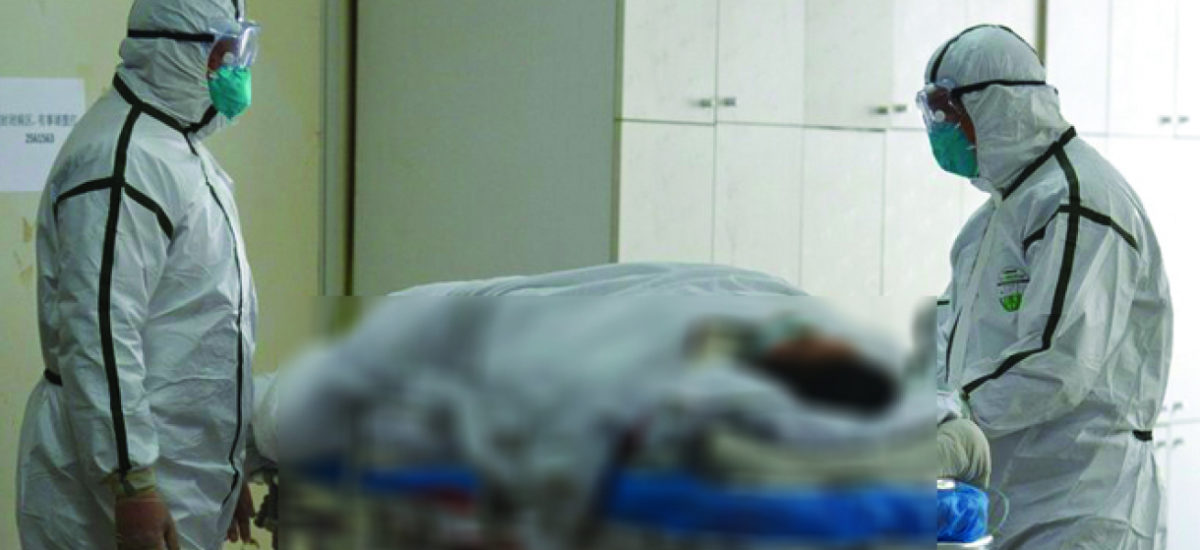Photo courtesy of Sri Lanka Mirror
Today is World Health Day
Towards end of March, about two months into the pandemic, a TV program discussed the challenges of the pandemic response with politicians. A disturbing theme that was too prominent to ignore was the labeling of minorities as scapegoats for COVID-19. As a behind the scenes segment later showed the targeting was intentional. This was perhaps the opening scene of a series of actions and inactions related to stigma that have left a black mark on the COVID-19 response of Sri Lanka.
The lie that a select group of people was solely responsible for the spread of a disease is like wildfire burning through communities. It is reckless, damaging and hurts us all. One example is anti-Asian hate due to clear political scapegoating in the United States. In Sri Lanka, we have seen it causing damage to many communities. First the Muslim community, then the members of the Navy, the garment factory workers, returnees from overseas, the fishermen and the list goes on. At most instances each of these communities, often vulnerable and poor, were at the receiving end of blame and loss of privacy. The Muslim community remained and perhaps remains a recurring target of stigma, a convenient punching bag for the frustrations dealt by the pandemic. Media threw logs into the fire, social media poured fuel and confusion set in. The government perhaps dealt the worst blow, by forcing cremations of victims affected by COVID-19, a decision despite overwhelming scientific facts, remained in practice till February 2021. A year into the pandemic. Ten months since the mandatory policy was enacted.
The attempts at quelling stigma from government officials were a letter by the then Director General of Health Services Dr. Anil Jasinghe in April 2020, and another letter in October by the Department of Information. Both politely requested media to adhere to better reporting etiquette. That is it. Two letters.
As fear, populist conspiracies, privilege of the few and pseudo-science harmed people, there was no meaningful policy action by the government. Stigma remains a factor.
So, you stop and ask the question, where is kindness in our health policy?
Yes, we need scientific evidence, economic calculations, social assessments for policy making but at the heart of health policy is the need to help those who are suffering. At the center of health policy is humanity. We have strayed so far from this primary goal and what is worse is that we know that we can do better. Sri Lanka’s public health system is considered a success in the region and among countries with similar gross national income levels. Our health system stands out because it is pro-poor, because our policies prioritize the vulnerable from vaccination coverage to saving lives of mothers. Without policy leadership that cared about the vulnerable and the dedication of healthcare workers none of those successes would have been possible.
Yet, we are failing now.
Although healthcare workers remain committed, our policies have failed us at combating stigma, countering harmful misinformation on COVID-19 related marginalization and public health guidance has become less prominent. After every cluster there is a vicious cycle of stigma that traps communities in between fear and seeking help. Think about it. How difficult the choice of testing for COVID-19 be if you feared you would be making your family or your community a target? Our COVID-19 related public health guidance is at times so sudden that it can give you whiplash and leave you dazed with no explanation whatsoever. A sudden curfew that disappears as quickly as its issued. A threat is issued to the public who may have had plans before. So, you wonder: is there another outbreak? Who is to blame?
Right now, we are still in the middle of the pandemic. Vaccine inequity caused by the selfishness of high-income countries will continue to delay vaccine supply and in turn vaccination. Pandemic fatigue has set in. Thus, our focus on public health guidance and public health messaging that inform the public, counter populist conspiracies and builds faith is essential. And in this moment, it is perhaps the kindest action we can take from a policy perspective.
In the absence of kindness and care for the vulnerable as the guiding force for our public health policy – political determinants will run rampage and damage the trust built around our public health institutions. We see results of such damage in countries like Brazil. It is time we normalize kindness in our policies and in our actions as well. Normalize not pointing fingers and not being angry at someone for getting sick. And support our vulnerable communities whether it is prioritizing them at the vaccine line or whether it is providing enough monetary support for those who are struggling.
While the larger responsibility of ending stigma lie with the policy makers, responsibility of ending stigma also lies with us as citizens.
The author is formerly a Policy Associate at the Center for Policy Impact at the Duke Global Health Institute and is currently a Ph.D. candidate focusing on global health policy at McGill University. He tweets at @ShashikaLB


